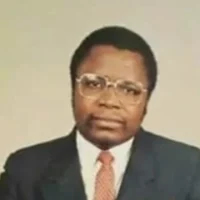The leader of the Bangladesh’s independence movement, Sheikh Mujibur Rahman, helped create a sovereign nation, successfully taking on Pakistani occupying forces only to lose his life soon after coming to power. Britain relinquished its rule in the Indian subcontinent in 1947 and the area was carved into separate political entities. “East Pakistan” (now Bangladesh) was… Read More "Creating Bangladesh: The Triumph and Tragedy of Sheikh Mujib"
A Crack in the Iron Curtain: Freeing Sharansky
As General Secretary of the Communist Party, Mikhail Gorbachev authorized the release of thousands of Soviet Jews who wanted to leave the USSR. In 1986 only 914 Soviet Jews were allowed to emigrate; by 1990 the number was 186,815. A group of about 11,000 who had been denied emigration visas were known as refuseniks. Natan Sharansky, a spokesperson for… Read More "A Crack in the Iron Curtain: Freeing Sharansky"
Tracking China’s Political Change through Dazibao Posters
Chinese “big-character posters,” or dazibao, are handwritten posters mounted on walls and published in papers or pamphlets to communicate protest or launch ideas into public discourse. During the era of Mao Zedong, throughout the Great Leap Forward and the beginning of the Cultural Revolution, dazibao were part of mass campaigns directed by the Communist Party.… Read More "Tracking China’s Political Change through Dazibao Posters"
Iraq’s Rocky Road to Recovery Post-Saddam
In the wake of the U.S.-led Coalition Forces invasion of Iraq in March, 2003 and dissolution of the Ba’ath Party, a transitional administration was created, the Coalition Provisional Authority (CPA). The CPA held executive, legislative and legal authority for a little over a year, beginning April 21, 2003, while a more permanent Iraqi government was… Read More "Iraq’s Rocky Road to Recovery Post-Saddam"
Billion-Dollar “Plan Colombia” to End Decades of Civil War
Published January 2016 A guerrilla organization known as the Revolutionary Armed Forces of Colombia – People’s Army (Fuerzas Armadas Revolucionarias de Colombia—Ejército del Pueblo, FARC–EP and FARC) has been at war with the Colombian government since 1964, marking it as the hemisphere’s longest-running armed conflict. The FARC has claimed to be a Marxist-Leninist army representing… Read More "Billion-Dollar “Plan Colombia” to End Decades of Civil War"
Leveling the Playing Field in the Salvadoran Civil War
The Salvadoran Civil War, lasting from 1979-1992, pitted the military-led government of El Salvador against a coalition of five left-wing guerrilla groups known collectively as the Farabundo Marti National Liberation Front (FMLN). Combat was vicious and fought by both the government and guerrilla forces without regard for human rights. More than 75,000 Salvadorans lost their lives and an… Read More "Leveling the Playing Field in the Salvadoran Civil War"
Survivor of Two Concentration Camps, U.S. Ambassador to Three Countries
Robert Gerhard Neumann (1916–1999), seen at right with wife Marlen, served as U.S. Ambassador to Afghanistan, Morocco, and Saudi Arabia. Born in Vienna, Austria, he belonged to political activist groups as a student. While studying in Geneva, he was arrested by the Nazis and imprisoned for almost a year, spending part of that time in… Read More "Survivor of Two Concentration Camps, U.S. Ambassador to Three Countries"
Burundi: With Independence Came Genocide
Coordinated attacks in Burundi in recent years left hundreds dead and forced thousands to flee the country. The State Department advised Americans to depart and drew down the embassy in response to the escalation in violence amid concern that the small African nation could again be on the brink of civil war. Internal conflicts have pitted… Read More "Burundi: With Independence Came Genocide"
Georgia and The Rose Revolution
Georgia declared independence from the Soviet Union in April 1991, and problems and instability arose almost immediately. The first President of Georgia, Zviad Gamsakhurdia, governed in an authoritarian fashion and was deposed in a violent coup d’état less than a year later. Eduard Shevardnadze, seen as more moderate, was chosen as Georgia’s second president in… Read More "Georgia and The Rose Revolution"
Liberia erupted in violence on April 12, 1980 as Master Sergeant Samuel Kanyon Doe seized power from President William Tolbert, ending 133 years of political dominance by Americo-Liberians. Americo-Liberians traced their ancestry to African Americans and Black British subjects who immigrated to Africa and became the founders of the Republic of Liberia, in power from 1847-1980. In October… Read More "Surviving the Coup that Transformed Liberia"

